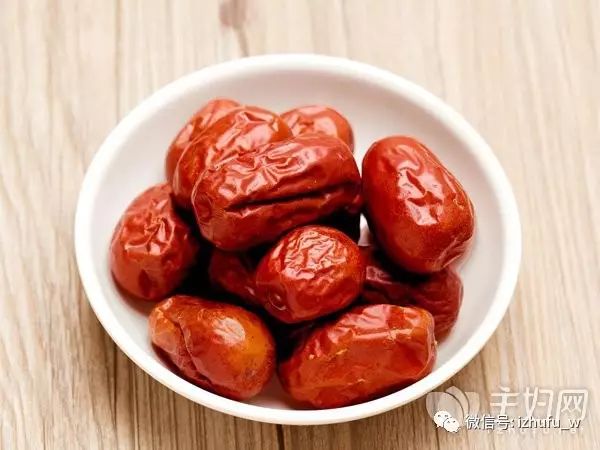|
Qi and blood are fundamental to human health. Qi deficiency or blood deficiency can significantly harm the body. So, what causes Qi deficiency? Who is most susceptible to it? How can individuals with Qi deficiency adjust their health? What should they eat? Let’s explore these questions. |

Most Susceptible Groups to Qi Deficiency 1Individuals with Congenital Deficiencies
1Individuals with Congenital Deficiencies
Parents with Qi deficiency or significant pregnancy reactions can lead to fetal malnutrition, premature birth, or improper postnatal care, resulting in a Qi deficient constitution.
2People with Chronic OverworkMental and physical laborers who experience excessive fatigue without timely recovery may gradually develop Qi deficiency. Mental workers who overthink can injure the spleen, while physical laborers who overexert themselves without adequate rest and nutrition can also develop Qi deficiency.3Individuals with Serious or Chronic IllnessesProlonged illness depletes Qi. Those who have had major illnesses, surgeries, or chronic diseases, or have weakened organ functions (such as the lungs, spleen, and kidneys), may experience insufficient Qi production, leading to a deficiency of vital energy.4People with Poor Sleep HabitsInsufficient sleep harms the body, leading to fatigue and inadequate nourishment of Qi and blood, resulting in Qi deficiency. Conversely, excessive sleep can also be detrimental; prolonged lying down can weaken Yang Qi, leading to lethargy and weakness.5Individuals on Strict DietsThis is a common cause of Qi deficiency among young women. Prolonged dieting for a slim figure can lead to insufficient nutrition, gradually weakening organ functions and causing Qi deficiency. Additionally, consuming excessive cold, greasy, or rich foods can impair spleen and stomach function, also leading to Qi deficiency.6People with Severe Lack of ExerciseThose who do not exercise may experience slow blood circulation, leading to stagnant Qi. Individuals with Qi deficiency often feel fatigued and reluctant to move, and even light activity can lead to excessive sweating and breathlessness.7Individuals Prone to AngerEmotional stagnation, frequent unhappiness, and inability to adjust emotions can easily lead to Qi deficiency. Additionally, those who become easily angered during meals are particularly susceptible to Qi deficiency.8Individuals on Long-term MedicationHere, replace your text content, ensuring not to delete all text with the delete key; keep one or use the mouse to select and copy-paste from a TXT document to prevent format disruption.

How to Adjust Qi Deficiency
1
Increase Physical Activity:The body’s Qi must continuously interact with the natural atmosphere. Regular activity generates heat; inactivity leads to stagnation. For those with Qi deficiency, the more reluctant they are to exercise, the more they need to move, or their Qi deficiency will worsen.
2
Manage Negative Emotions:Avoid excessive worrying, maintain a calm and optimistic mindset, and learn to express dissatisfaction in a healthy way to alleviate negative emotions.
3
Avoid Stimulating Foods:Individuals with Qi deficiency should consume warming foods such as yam (Shan Yao), red dates (Hong Zao), chicken (Ji Rou), and millet (Xiao Mi). Avoid spicy, cold, bitter, and rich foods. Chew food thoroughly and eat until 70-80% full; avoid overeating.
4
Maintain a Balanced Lifestyle:Stick to a regular sleep schedule, avoid staying up late, and aim for early bedtimes and wake times. Avoid excessive fatigue and keep warm to prevent wind and cold.

What Should Individuals with Qi Deficiency Eat? 1
1
Japonica Rice (Jing Mi):Long-term avoidance of staple foods is detrimental to Qi. To nourish Qi deficiency, staple foods must not be neglected. Japonica rice strengthens the stomach, replenishes Qi, nourishes Yin, generates fluids, and alleviates thirst, making it effective for replenishing deficiency.
2
Red Dates (Hong Zao):They tonify Qi and blood, strengthen the spleen and stomach, and are commonly used for individuals with Qi and blood deficiency. Cooking red dates until soft enhances their effectiveness.
3
Peanuts (Hua Sheng):They tonify the middle and benefit Qi, while also nourishing the spleen and lungs, suitable for those with Qi deficiency accompanied by lung or spleen deficiency.
4
Bird’s Nest (Yan Wo):It benefits Qi, nourishes deficiency, and supports Yin and lung health, suitable for those with spleen and lung weakness or any Qi deficiency conditions.
5
Cherries (Ying Tao):They are excellent fruits for tonifying Qi, nourishing blood, and strengthening the spleen and kidneys, effective for treating all deficiency syndromes.
6
Grapes (Pu Tao):They are also good fruits for tonifying Qi and blood, nourishing kidney fluids, benefiting liver Yin, and strengthening bones, suitable for those with Qi deficiency, kidney deficiency, lung deficiency, and spleen deficiency.
7
Eel (Shan Yu):It replenishes deficiency, benefits Qi, and strengthens bones, making it a great food for those with Qi deficiency.
8
Chicken (Ji Rou):It warms the middle, benefits Qi, nourishes essence, and blood, suitable for those with Qi deficiency, blood deficiency, or kidney deficiency.
9
Beef (Niu Rou):It benefits Qi and blood, strengthens the spleen and stomach, and has similar Qi tonifying effects as Astragalus (Huang Qi).
WeChat Name: Qincheng Beauty
❶ Knowledge on Sexual Health, Health Preservation Knowledge ❷ Send 001-042 for more content. WeChat ID: qcjr18 ❸ Long press the QR code on the right to follow.


